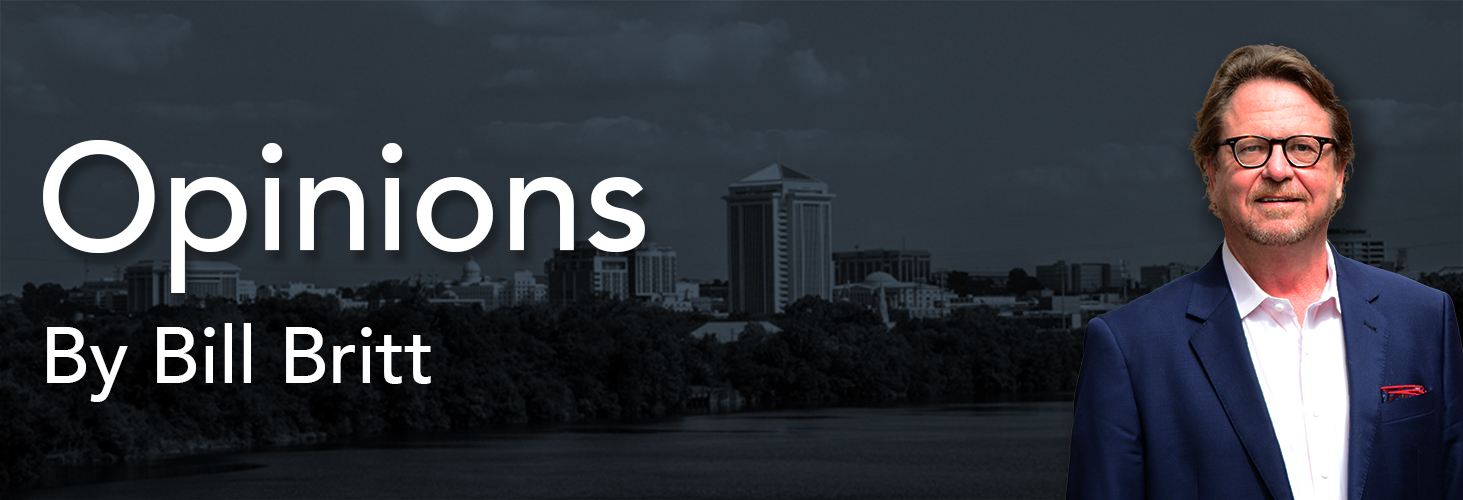By Bill Britt
Alabama Political Reporter
Noblesse oblige is a French phrase literally meaning “nobility obliges.”
It is a phrase that has been used through the centuries to mean for those who have attained wealth, power and prestige there comes implied responsibilities.
It is also a phrase that has been used as a derogatory slur toward the wealthy who are perceived as having gorged themselves at others’ expense.
This has risen of late in the guise of the occupy movement verses the one percenters.
Class warfare, as some refer to it, has become a political tool but this is nothing new, just old trickery with a new slogan.
My view has been that with great responsibility comes greater obligation.
From my personal experience and upbringing, the verse “For everyone to whom much is given, of him shall much be required.” — Luke 12:48, is an example of responsible behavior in a position of authority.
What we have come to call the Parable of the Faithful Servant encapsulated at least in part the notion of noble obligation.
But do we have a responsibility toward the poor, the disadvantaged and those in need?
This, of course, becomes much more murky as we apply it to government policy.
Never more so than today—when the welfare state as grown disproportionately to what most believe is acceptable or sustainable. The question has become how much if any responsibility does the government have toward its poorest citizens? This has has become a thorny and divisive issue, mixing class, race and stereotypes in an unholy brew of lies and ignorance.
The term “entitlements” is a word used despairingly toward programs such as Medicaid, Medicare, Social Security and any other welfare-oriented government-supported program.
Of course to call Medicaid, Medicare or Social Security an entitlement is actually misleading and wrong. It is meant for one effect, to degrade the programs themselves and to a degree those who rely on them.
No one is entitled to Medicaid, but when it comes to Medicare and Social Security there is an obligation for at least some people to receive from those programs because many have spent years of their working lives paying into them.
But like so many things in political life posturing and bloviating against something should never stand in the way of facts.
Are Medicare or Social Security good ideas, probably not the best but as we have seen time and again there is little will to face the hard work of retooling these massive systems.
So, from the “Welfare Cadillac to the One Percenters” politicians have divided us along social and economic lines.
In the Robert A. Heinlein novel To Sail Beyond the Sunset, Dr. Johnson says, “Does your common man understand chivalry? Noblesse oblige? Aristocratic rules of conduct? Personal responsibility for the welfare of the state? One may as well search for fur on a frog.”
Once upon a time these ideas were so strong and consistent in the South that the best and brightest of a generation rode off under the banner of the Stars and Bars to die in what became known as “The Lost Cause.”
These young men of the Confederacy so believed in the idea of noblesse oblige that they laid down their lives in service to an idea.
Noblesse oblige serves as the motto for the National Honor Society, which cites its purpose as to convey “fulfilling their obligations through service to others.”
Before the19th century, English custom demanded that with wealth and privilege came a responsibility to provide for the poor. They also believed that the poor would always be with us. For the English gentry of that period social mobility was a concept they never even considered.
But social and economic improvement has been the cornerstone on the American dream.
Today, there is an almost palatable distain for the poor. Abuse and misuse of welfare safety nets have caused a near hatred by some in the middle classes toward those in the lower.
There are many reasons that we have an increased growth in those who rely on Medicaid and other social welfare programs, failures of families, failures in education and general moral decline are but a few, we could also look at globalization, outsourcing, decline in good paying jobs for people without education, etc.
But there is also simply the fact some people are poor or disabled and that is just a fact.
With leadership comes great responsibility, a seat at the head of government demands honest service.
It is easy to make decisions in the vacuum of our own experience, it is another to make them when looking into the eyes of a needy human.
Noblesse oblige of the highest order is a heavy responsibility, those who dare lead our state should wear it with grace as it is a honorable gift.





















































